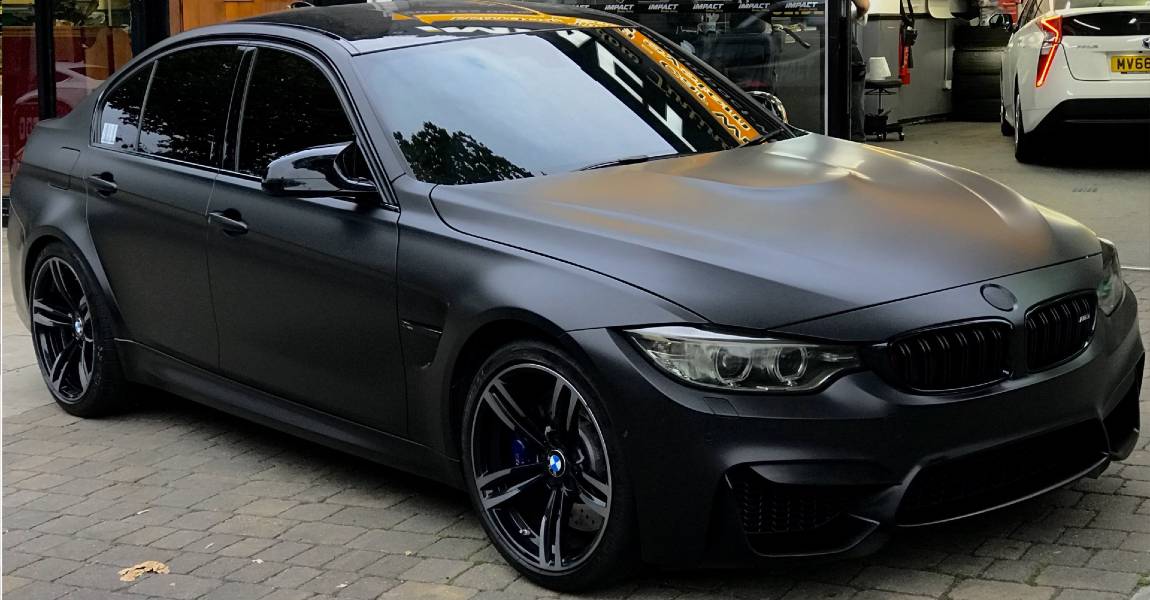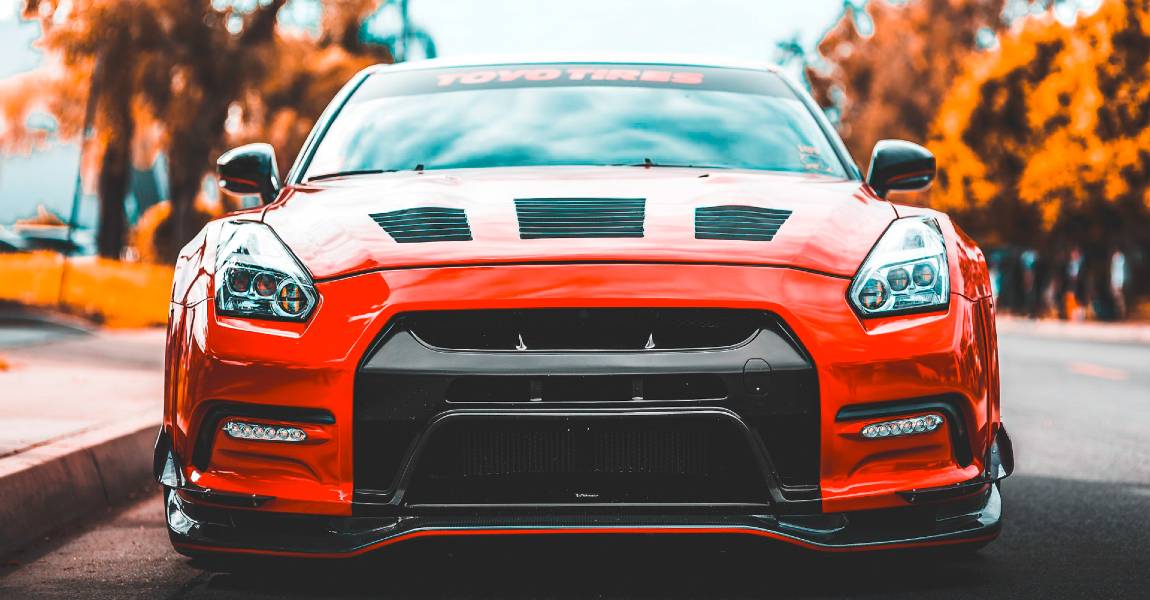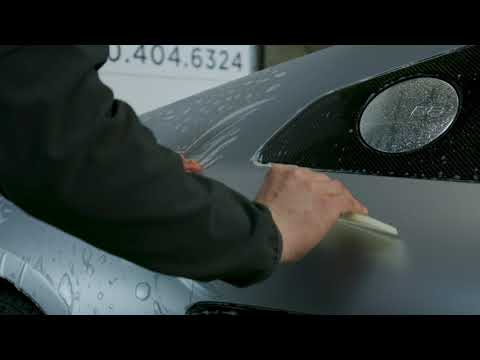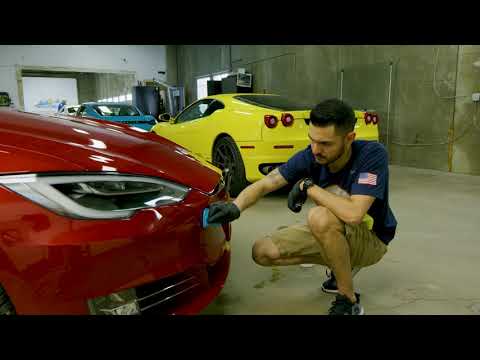Different types of window tinting for cars in Denver Colorado’s climate can be a game-changer.
Truth is, it’s not just about aesthetics or privacy anymore.
The right type of window tinting acts as your car’s shield against the harsh sun and biting cold that are characteristic of Denver’s diverse weather conditions.
In fact, understanding different types of window tinting for cars in Denver Colorado’s climate could mean the difference between an overheated vehicle and a cool, comfortable ride.

Table of Contents:
- Understanding Window Tint for Cars
- Exploring Different Types of Car Window Tint
- Delving into Carbon Window Film
- Unpacking Ceramic Window Film
- Understanding Crystalline Window Film
- Examining Dyed Window Films
- Assessing Hybrid Films
- Metalized Window Films – A Detailed Look
- Maintenance for Different Types of Tint
- Window Tinting Near Me
- FAQs Concerning Different Types of Window Tinting for Cars in Denver Colorado’s Climate
- Conclusion
Understanding Window Tint for Cars
- We’re going back in time – the 1980s, to be exact. This was when window tinting for cars first became a thing.
- The idea? To give car owners much-needed privacy and insulation from those harsh sun rays hitting their single-pane windows.
- Fast forward to today, many new vehicles are rolling off assembly lines with an option for factory-installed tints.
- But here’s the catch.
- There are regulations limiting manufacturers from applying this feature universally.
- This has sparked a growing demand for aftermarket tints. And guess what? That’s where we come into play.
- Before committing, you must know local regulations regarding tint darkness.
- Each state has its own laws regarding how dark your window tints can be. So it’s important to check local rules before making any decisions.
- Now that we’ve covered some history and legalities of car window tinting, let’s explore different types of car window tints available in Denver, Colorado’s climate.
Exploring Different Types of Car Window Tint
If you’re considering getting window tinting for your car, it’s essential to be aware of the variety of window tinting that is accessible.
The types of window films you’re buying can significantly impact factors like UV protection, heat insulation, durability, and cost.
This automotive tint uses micro-layers of polymer and carbon for a smooth, dark, matte finish.
Not only does this give an aesthetic appeal, but it also provides excellent UV protection without fading over time, unlike dyed films.
A ceramic layer is sandwiched between an adhesive bottom layer and a protective topcoat in Ceramic tints.
Despite being costly, they offer benefits such as shatter-proof, reduced glare, and enhanced durability.
Tinted windows, often overlooked due to their transparency, provide remarkable heat and UV ray protection, making them ideal if darker tints are prohibited.
Dyed films utilize a dye placed between layers of adhesive, effectively absorbing solar heat and preventing upholstery from becoming hot.
It reduces glare improving driver safety though they fade over time when exposed to sunlight.
Before deciding on the best fit for your vehicle needs. Could you weigh the pros and cons of each option?
Remember, Colorado laws around auto window tinting ensure legal compliance while enhancing the comfort and aesthetics of your ride.
Delving into Carbon Window Film
If you’re looking for top-notch UV radiation protection and thermal insulation, carbon film is a stellar choice.
This type of window tint film uses micro-layers of polymer and carbon to create a smooth, dark, matte finish. Unlike dyed films, it doesn’t fade over time.
The result?
A durable automotive window film tint that keeps your car cool in the summer heat while blocking harmful UV rays from damaging your skin or fading your leather upholstery. Research shows long-term exposure to these rays can lead to serious health issues, including skin cancer.
- Durability: The unique combination of polymers ensures this film type won’t peel off easily, unlike cheaper alternatives on the market.
- UV Protection: Offers superior protection against the sun’s harsh ultraviolet radiation, reducing the risk of associated illnesses like cataracts & melanoma.
- Fade Resistance: No more worrying about color changes due to sunlight exposure with its excellent resistance properties. It stays true to its original shade throughout its lifespan, adding aesthetic value to your vehicle.
But here’s the catch: these high-quality features have a hefty price tag. Carbon tints are among the pricier options available today. Despite the hefty price tag, investing in carbon tints could be a worthwhile decision for those wanting to keep their cars for an extended period due to their durability and longevity.
Considering their cost and benefits, carbon tints may be worth the investment for those who intend to keep their cars for a longer time. It not only enhances the look and feel of your ride, but also provides the necessary comfort and safety measures required during travel.
Next up, we’ll explore another popular option – ceramic window films. Let’s dive deeper to understand what they offer.

Unpacking Ceramic Window Film
If you’re searching for a glass window tint that offers superior protection without compromising visibility, the ceramic film type might be your best bet.
This high-quality option is composed of three distinct layers: an adhesive layer at the bottom, a middle layer packed with microscopic ceramic particles, and finally, a protective topcoat to seal it all in.
The magic lies within those tiny ceramics. They work tirelessly to block harmful UV rays from entering your vehicle’s interior while ensuring no interference with electronic devices inside – an issue often associated with other types of tints.
But these benefits come at a cost – literally. Ceramic films are among some of the pricier options available due to their advanced technology and enhanced durability features.
- Durability: Unlike dyed or metalized films which can fade over time, ceramic window tints maintain their color stability even after years under harsh sunlight conditions.
- Safety: In case of accidents or break-in attempt, the unique composition makes windows shatter-proof, adding an extra level of safety for occupants.
- Glares Reduction: Ceramic films significantly reduce glare, improving driver comfort and vision, especially during sunny days and long drives.
Investing in quality like this not only improves the driving experience but also prolongs the life of car interiors, protecting them from sun damage.
Despite being costly upfront, the multiple advantages offered by such type make it worth considering if longevity and performance matter most to you. It’s essential to conduct a thorough investigation before settling on an ultimate choice, guaranteeing you get the item that accommodates your requirements and spending plan.
Understanding Crystalline Window Film
If you’re after a tint that doesn’t compromise your view, then Crystalline films might be the ticket.
This type of film is often overlooked due to its almost clear appearance.
But don’t let this fool you.
The magic lies in its ability to block heat and UV rays effectively.
A crucial factor if living under Denver’s intense sun or anywhere with similar climate conditions for that matter.
- Incredible Heat Protection: Despite being virtually transparent, these films offer superior protection against harmful solar radiation and uncomfortable heat build-up inside your car.
- No Dark Tint Needed: Unlike other types of tints, crystalline does not require a dark shade to provide adequate thermal insulation. This makes it an ideal choice where darker shades are prohibited by tint laws or not preferred by the vehicle owner.
Despite their many advantages, though, there’s one thing they may fall short on – privacy.
Because they’re so light, they won’t give much cover from prying eyes.
So if keeping things private inside your ride is a top priority, you might want to explore our next option instead – the dyed window film.
Stay tuned as we delve into what sets them apart.
Examining Dyed Window Films
Dyed window films are a popular choice among car owners.
This type of tint uses dye sandwiched between an adhesive layer and protective polyester coating, providing cost-effective solutions for those on a budget.
The Downside:
- Fading over time: The downside to dyed tints is that the dye fades overtime when exposed to sunlight. This makes them less durable than other alternatives such as carbon or ceramic films.
- Limited UV protection: While they do offer some degree of heat absorption, their ability to block harmful UV rays isn’t as strong compared with more advanced options like crystalline or metalized tints.
The Upside:
- Solar Heat Absorption: On the upside, dyed film absorbs solar heat preventing hot upholstery in your vehicle during summer months.
- Glares Reductions: It also reduces glare improving driver safety especially while driving under bright sun conditions or at night against high beam headlights from opposite traffic.

Assessing Hybrid Films
The world of window tinting is vast and varied.
One type that stands out from the rest is Hybrid films.
Hybrid car window tint films are a popular choice among car owners who want to enhance the appearance and functionality of their vehicles. These window films are specifically designed for hybrid cars, which have a unique set of requirements.
One of the key benefits of hybrid car window tint films is their ability to block harmful UV rays. These films usually have a particular UV-blocking layer that prevents the sun’s harmful rays from entering the car’s interior. This protects the occupants from the damaging effects of UV radiation and helps reduce fading and deterioration of the car’s interior materials.
Another essential feature of hybrid car window tint films is their ability to regulate heat inside the vehicle. These films have a heat-rejecting property that helps to keep the car’s interior cool, even on hot sunny days. By reducing the amount of heat that enters the vehicle, these films can help to improve the overall comfort level for both the driver and passengers.
Privacy window film is another significant benefit of hybrid car window tint films. These films are available in various shades and darkness levels, allowing car owners to choose the level of privacy they desire. The tinted windows provide privacy for the occupants and deter potential thieves by making it difficult to see inside the vehicle.
In addition to the functional benefits, hybrid car tint films also offer aesthetic advantages. They can significantly enhance the vehicle’s appearance by giving it a sleek and sophisticated look. The type of film installed is available in a wide variety of colors and finishes, allowing car owners to personalize their vehicles according to their preferences.
Furthermore, hybrid car tint films can also improve the overall energy efficiency of the vehicle. With the heat reduction entering the car, the air conditioning system doesn’t have to work as hard to cool down the interior. This can reduce fuel consumption and lower carbon emissions, making hybrid car tint films an eco-friendly choice.
It is important to note that installing hybrid car tint films should be installed by an experienced professional window tinting service that work with hybrid vehicles. This ensures the type of film installed is applied correctly and does not interfere with the car’s electronics or sensors.
Overall, hybrid car tint films offer a wide range of benefits, including UV protection, maximum heat rejection, privacy, aesthetics, and energy efficiency. They are a valuable addition to hybrid vehicles, providing both functional and visual enhancements.
A Blend of Best Qualities
This unique option combines dyed and metalized layers, bringing together the best qualities of both types while minimizing their drawbacks.
Metal Powder Presence: A Double-Edged Sword?
The presence of metal powder in hybrid films slightly increases the price compared to purely dyed ones.
However, given their light-blocking capabilities, sturdiness, and non-interference with electronics inside your vehicle, they offer good value for money.
Finding a Balance Between Cost And Quality
In terms of cost-effectiveness versus quality protection against harmful UV rays and heat insulation – it’s hard to beat these hybrids. How Much Does Car Window Tint Cost?
We’ve covered quite a bit about the different varieties of window tinting available on the market today. But there’s one more we need to discuss: Metalized film. So, let’s dive right into our next section.
Metalized Window Films-A Detailed Look
Let’s delve into the world of metalized films.
Constructed with multiple layers of protection; these tints are designed for maximum efficiency and comfort.
The base layer is a UV-blocking film that protects your car interior from harmful rays. UV protection, after all, isn’t just about skin health; it also prevents vehicle leather fading.
Above this sits a metallic reflective coat.
This shiny surface bounces back heat like no other tinting material can, keeping your car cool even in Denver’s scorching summers.
- Durability? Check. These films resist scratches and don’t fade over time.
- Cool interiors? Absolutely. They reflect heat efficiently, enhancing cabin comfort.
- Elegance? Well… it depends on who you ask. Some find the reflective surface unattractive or distracting to outside viewers due to its mirror-like finish.
Make such features invaluable.
A downside, however, is that the metallic material can disrupt electronic devices within cars – such as navigation systems or mobile phone signals. The presence of metal interferes with electronic devices inside a vehicle, GPS systems, or cell phone signals. If tech compatibility matters more than temperature control to you, consider alternative options.
Remember: every choice has trade-offs. Choose what suits your needs best when selecting tints for cars in Colorado.
Maintenance for Different Types of Tint
Car window tint maintenance is crucial for ensuring the longevity and functionality of your car’s windows. When it comes to window tinting, there are different types available, each requiring specific maintenance measures.
For traditional dyed window tinting, avoiding ammonia-based cleaners or abrasive materials that could damage the tint is important. Instead, use a mild soap and water solution or a specialized window tint cleaner to clean the tinted surface gently.
Ceramic window tinting, on the other hand, is highly durable and requires minimal maintenance. Regular cleaning with a non-abrasive cleaner and a soft cloth should suffice.
Additionally, ceramic tinting offers superior heat rejection and UV protection, reducing the risk of fading or damage to the interior of your car. It is important to follow the manufacturer’s guidelines for maintenance and cleaning to ensure the longevity and performance of the tint.
By properly maintaining your car’s window tinting, you can enjoy the benefits of enhanced privacy, reduced glare, and improved comfort while driving.
Window Tinting Near Me
For car window tinting near Denver, Colorado Clear Bra offers expert services that enhance your vehicle’s comfort, privacy, and protection. Specializing in high-quality ceramic window tints, they provide excellent UV protection and heat rejection, ensuring a cooler interior while preserving your car’s aesthetics. Their experienced technicians use top-tier materials and precise application techniques to deliver long-lasting results, with tints that comply with Colorado’s legal standards. Located conveniently in the Denver area, Colorado Clear Bra is a trusted option for all your window tinting needs.

FAQs Concerning Different Types of Window Tinting for Cars in Denver, Colorado’s Climate
What tint is required in Colorado?
In Colorado, the front side windows must allow over 27% of light in. Rear windows and backside can have any level of darkness.
What are the tinting categories?
Tinting categories include carbon, ceramic, crystalline, dyed, hybrid, and metalized films. Each offers different benefits, like UV protection or heat insulation.
What type of tint is best for vehicles?
The ‘best’ tint depends on your needs. Ceramic tints offer superior UV protection and durability but are costly, while dyed tints are cost-effective but less durable.
What’s the difference between carbon and ceramic tint?
Carbon film provides excellent UV protection with a dark matte finish, while ceramic film has microscopic particles offering superior UV protection without affecting visibility.
Conclusion
Window tinting in Denver’s climate is more than just an aesthetic choice. It’s a practical one too.
Different types of window tints cater to different needs and preferences, each with pros and cons.
The Carbon film offers excellent UV protection and thermal insulation but is more expensive.
Ceramic films offer superior UV protection without affecting visibility or electronic devices inside the vehicle. In contrast, Crystalline films are perfect for those who prefer clear views despite their lack of privacy features.
Dyed films are cost-effective yet less durable due to dye fading over time. In contrast, Hybrid Films combine the best qualities of dyed & metalized layers, offering good value for money.
Metalized films can reflect heat effectively, improving the comfort within the car. However, they may also cause interference with the electronics in your vehicle.
If you’re ready to enhance your ride experience by choosing the right tinting solution explicitly tailored for Denver, Colorado’s climate, consider reaching out to Colorado Clear Bra professional window tinting service
We specialize in Clear Bra installations, Ceramic Coating applications, and Window Tinting installation services that improve aesthetics and protect your automobile investment against harsh environmental elements. Let us provide an estimate on window tinting to assist you in deciding which kind of window tinting will suit your needs. Get started today!




